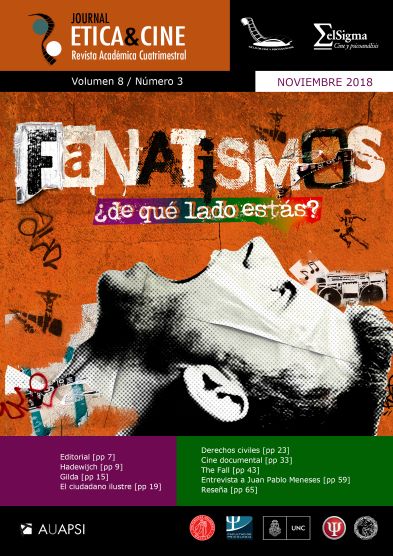People do not want to think, people want to be a fan
DOI:
https://doi.org/10.31056/2250.5415.v8.n3.22770Keywords:
Author, Writer, Fan, Reception theory, Reader, Literary criticismAbstract
About El ciudadano ilustre and the mediatization of the author as a star figure and the phenomenon of the author’s importance more than the writer’s work. People want to be a fan. In addition, the article makes a brief explanation of the structuralism positions of literary criticism, which in the mid-twentieth century postulated the “death of the author” and the birth of the theory of reception, that is, the importance of the reader and interpretation much more than of authorship and intentionality of the author. However, the author was taking more and more prominence, although he does it outside the text. The author ceases to be a function within the text and becomes enormously important as a person of flesh and blood.References
Blanchot, M. (1955 [1992]). El espacio literario. Traducción de Vicky Palant y Jorge Jinkis. Barcelona: Paidós.
Borges, J. L. (1944 [1992]). Ficciones. Barcelona: Círculo de Lectores.
Canetti, E. (1960 [2002]). Masa y poder. Obras Completas. Traducción de Juan José del Solar. Barcelona: Galaxia Gutenberg.
Freud, S. (1921 [1976]). Psicología de las masas y análisis del yo. Obras Completas. Traducción de José L. Etcheverry. Buenos Aires: Amorrortu.
Piglia, R. (1986 [2001]). Crítica y ficción. Barcelona: Anagrama.
Piglia, R. (2015). Antología personal. Barcelona: Anagrama.
Downloads
Published
Issue
Section
License
Los autores que publiquen en Ética y Cine Journal aceptan las siguientes condiciones:
Los autores/as conservan los derechos de autor © y permiten la publicación a Ética y Cine Journal, bajo licencia CC BY-SA / Reconocimiento - Reconocimiento-CompartirIgual 4.0 Internacional. La adopción de esta licencia permite copiar, redistribuir, comunicar públicamente la obra, reconociendo los créditos de la misma, y construir sobre el material publicado, debiendo otorgar el crédito apropiado a través de un enlace a la licencia e indicando si se realizaron cambios.

Este obra está bajo una licencia de Creative Commons Reconocimiento-CompartirIgual 4.0 Internacional.




